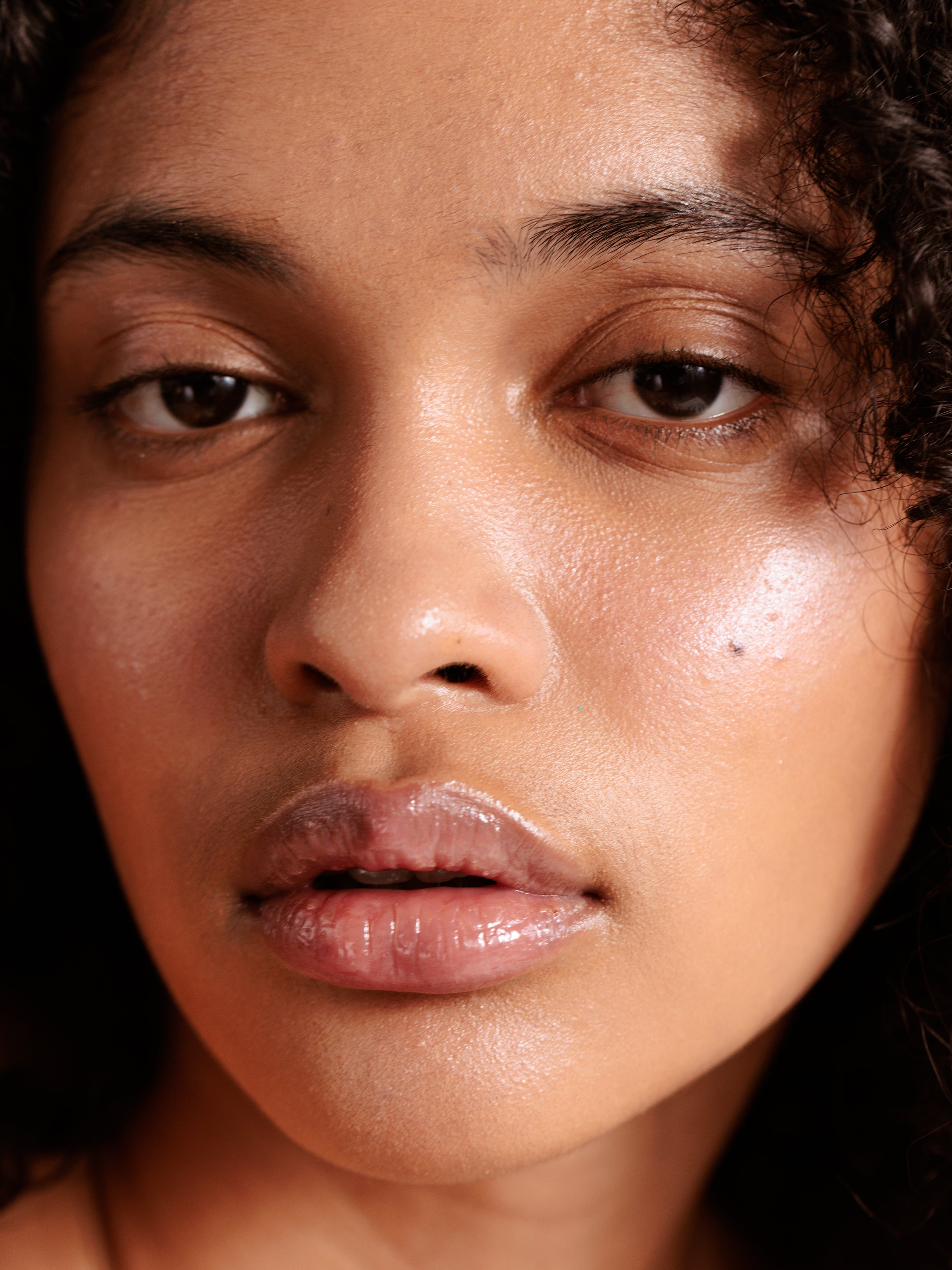
What is the skin microbiome?
IN THIS ARTICLE:
- 01 What is the skin microbiome?
- 02 What you need to know about your skin microbiome
- 03 How can you tell if your microbiome is imbalanced?
- 04 How to maintain a healthy skin microbiome
While the presence of bacteria on your skin may initially sound concerning, it's worth noting that there is a fascinating phenomenon known as 'good bacteria' residing there. In reality, your skin serves as a thriving habitat for a diverse array of microorganisms, and it's important to recognize that not all of them are harmful.
What is the skin microbiome?
The skin microbiome is like a fascinating and intricate ecosystem that exists right on the surface of your skin. It's made up of a diverse community of microorganisms that work together in to maintain overall skin health.
Just how vital is your skin microbiome? Here are its functions:
- Protection - Your skin's natural microbiome acts as a protective shield, serving as the first line of defense against external threats, safeguarding your skin from potential harm
- Maintaining skin’s pH levels - It also plays a crucial role in maintaining the delicate balance of your skin's pH. You may not realize it, but your skin is somewhat acidic, and the microbiome acts as a balancing factor to keep the pH level just right. This helps to prevent infections and keep your skin healthy.
-
Enhancing the skin barrier adds extra layers of protection. Beyond the skin's physical barrier, the microbiome also aids in retaining moisture, ensuring the skin remains well-hydrated and supple.
While it's true that your skin hosts microorganisms, don't be tempted to skip facial cleansing. Cleansing remains an essential initial step in any skincare regimen. Elevate your routine with a face and body cleansing brush such as a rotary or sonic powered one.
What you need to know about your skin microbiome
The surface of your skin is home to a wide range of microorganisms, including bacteria, fungi, viruses, and even mites. Each one plays a crucial role in maintaining a delicate balance that protects your skin from harmful invaders. It's interesting to note that a diverse microbiome is often linked to healthy skin. In fact, the greater the variety of microorganisms residing on the skin, the better it tends to be for overall skin health.
What makes the skin microbiome even more intriguing is its uniqueness to each individual, similar to a fingerprint. Several factors influence our microbiome:
- Genetics can influence the types and proportions of microorganisms that naturally inhabit your skin. Certain genetic variations may make you more or less prone to certain skin conditions or affect the overall diversity of your skin microbiome
- Lifestyle choices - habits, such as hygiene, skincare products, and exposure to environmental factors, can impact the microbiome. For example, harsh cleansers may disrupt the balance of microorganisms on the skin
- Geographic location - Your geographic location, which encompasses factors like climate, humidity, and pollution levels, can impact the types of microorganisms that inhabit your skin. Various regions may host unique microbial communities, leading to variations in the diversity and composition of your skin microbiome
- Diet - the foods you consume can have an impact on your skin microbiome. Studies suggest that a diet rich in fruits, vegetables, and whole grains may promote a more diverse and balanced skin microbiome, while diets high in processed foods and sugar may have negative effects
- Skin type - different skin types, such as oily, dry, or combination skin, have unique characteristics that can influence the composition of the skin microbiome. For example, oily skin may provide a more favorable environment for certain microorganisms compared to dry skin
How can you tell if your microbiome is imbalanced?
Imbalances in the skin's microbiome can eventually manifest as various signs. Factors like hormonal changes and chronic lack of sleep can disrupt the microbiome, leading to observable effects on your skin.
Some common indicators of a disturbed skin microbiome include:
- Skin irritation - increased inflammation and irritation, causing redness, itching, or discomfort on the skin's surface
- Dullness - lackluster complexion and diminished radiance, making the skin appear dull and lacking vitality
- Excess oiliness - skin that’s shiny, greasy, and prone to clogged pores and breakouts
- Increased sensitivity - skin that’s more reactive and prone to sensitivity. It may become easily irritated by environmental factors, skincare products, or even mild changes in temperature or humidity
- Dryness - impaired ability to retain moisture, leading to dryness, flakiness, and a rough or tight feeling on the skin
- Premature aging - accelerated aging signs such as fine lines, wrinkles, and loss of elasticity. This may be due to increased inflammation, oxidative stress, and a compromised skin barrier function
- Increased susceptibility to infections - a weakened defense mechanisms, making the skin more vulnerable to infections by harmful microorganisms. Results in conditions such as acne, dermatitis, eczema, or psoriasis
How to maintain a healthy skin microbiome?
Maintaining something that's invisible to our eyes might seem challenging, but don't worry, all your good skin habits still apply. A mindful approach to skincare is the key. Here are some easy tips that can help you maintain a healthy skin microbiome:
- Cleanse gently - when cleansing your skin, opt for mild cleansers that won't strip off the skin's natural oils. Harsh cleansers can disrupt the delicate balance of the skin microbiome. Avoid excessive use of antibacterial products, as they can also disturb the beneficial microorganisms on your skin
- Exfoliate regularly - regular exfoliation helps to remove dead skin cells and promote cell turnover, which can contribute to a healthier skin microbiome. However, it's important to choose gentle exfoliators to avoid irritating the skin. Over-exfoliation can disrupt the skin's barrier and cause imbalances in the microbiome
- Moisturize - keeping your skin well-hydrated is crucial for maintaining a healthy skin barrier and supporting a balanced microbiome. Choose moisturizers that are suitable for your skin type and contain ingredients that nourish and hydrate the skin. Avoid harsh or drying ingredients that can disrupt the microbiome
- Protect from the sun - shielding your skin from harmful UV rays is essential for overall skin health, including the health of your skin microbiome. UV exposure can damage the skin's barrier and potentially disrupt the microbiome. Use broad-spectrum sunscreen with SPF, wear protective clothing, and seek shade during peak sun hours
Regular exfoliation is still essential, and when done correctly, it won't disrupt the skin's microbiome. Instead, it helps promote a healthier skin turnover, creating a favorable environment for your skin. You can exfoliate using tools like a microdermabrasion device or, for blemish-prone skin, consider using a blackhead vacuum remover.
Embrace International Women's Day and treat yourself to incredible savings on all your essentials! Get 15% off everything with code GIRLPOWER. Don't wait too long, offer ends March 14th!

written by Sophie Flair
References:
- https://www.no7beauty.co.uk/the-seven/expert-advice/skin-secrets-diving-into-the-marvellous-world-of-skin-microbiome/
- https://thoclor.com/the-sun-the-skin-the-microbiome/?v=e4dd286dc7d7
- https://www.lovelyskin.com/blog/p/the-best-skin-care-products-for-a-healthy-microbiome
- https://lepure.com/integrative-skincare/skin-microbiome/







Leave a comment
This site is protected by reCAPTCHA and the Google Privacy Policy and Terms of Service apply.